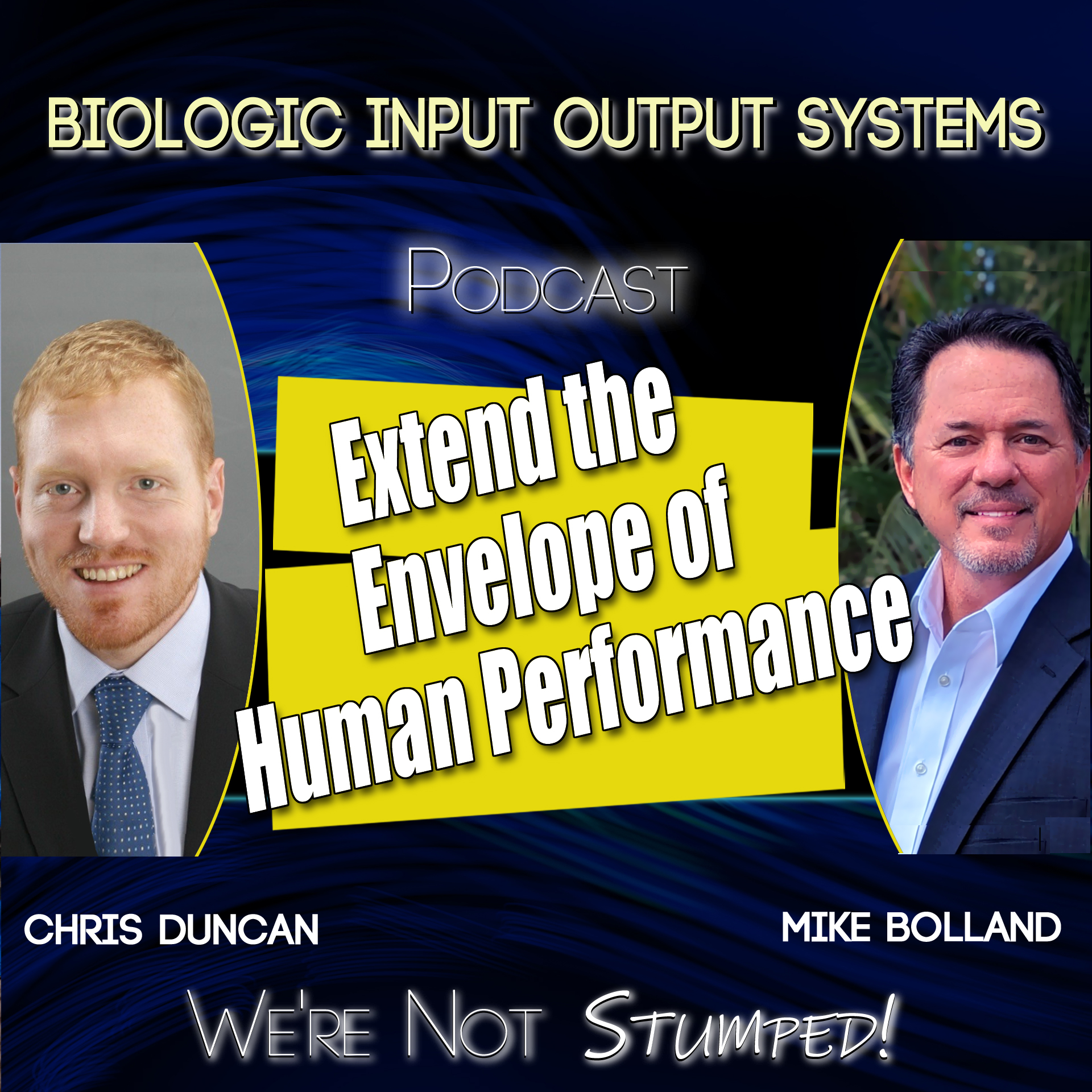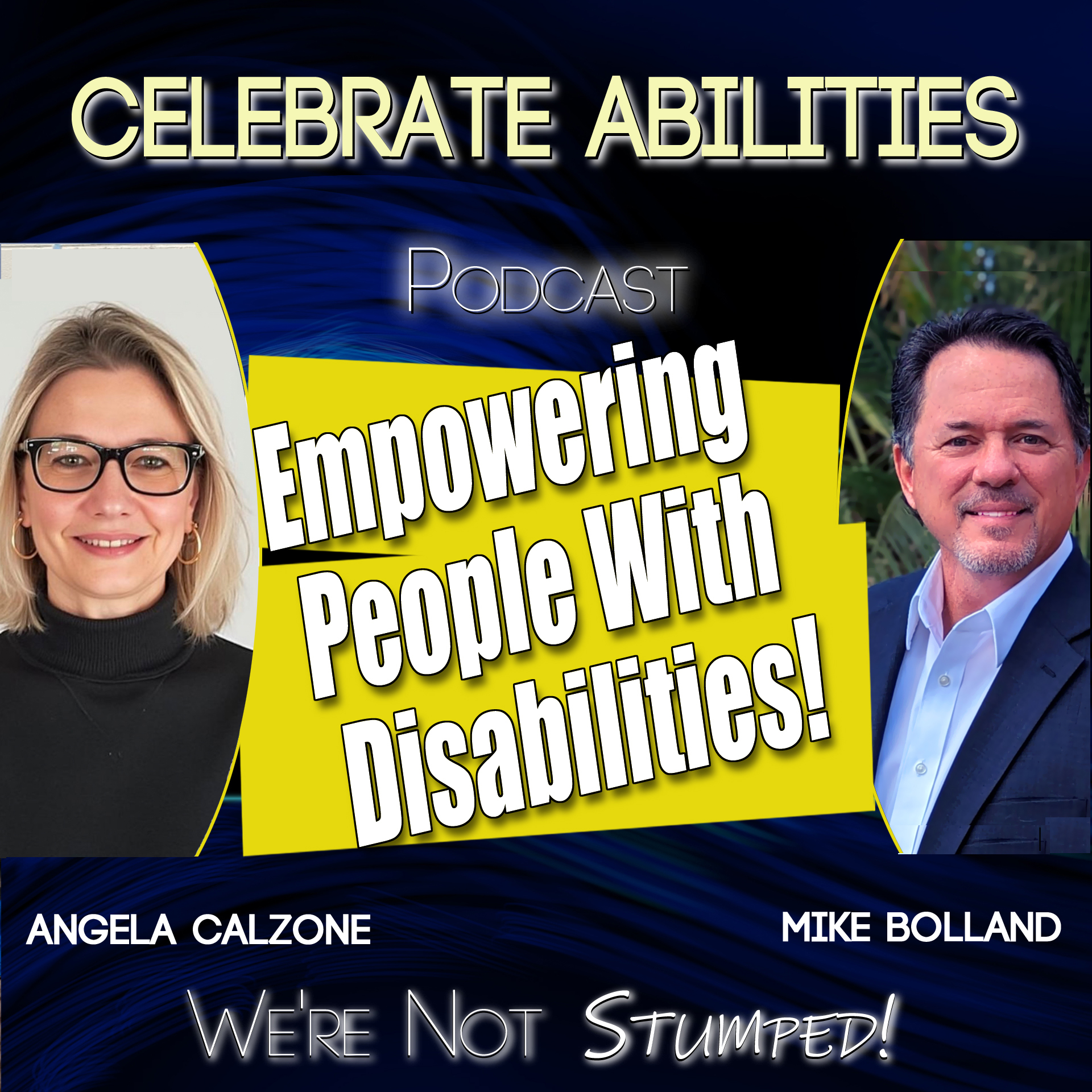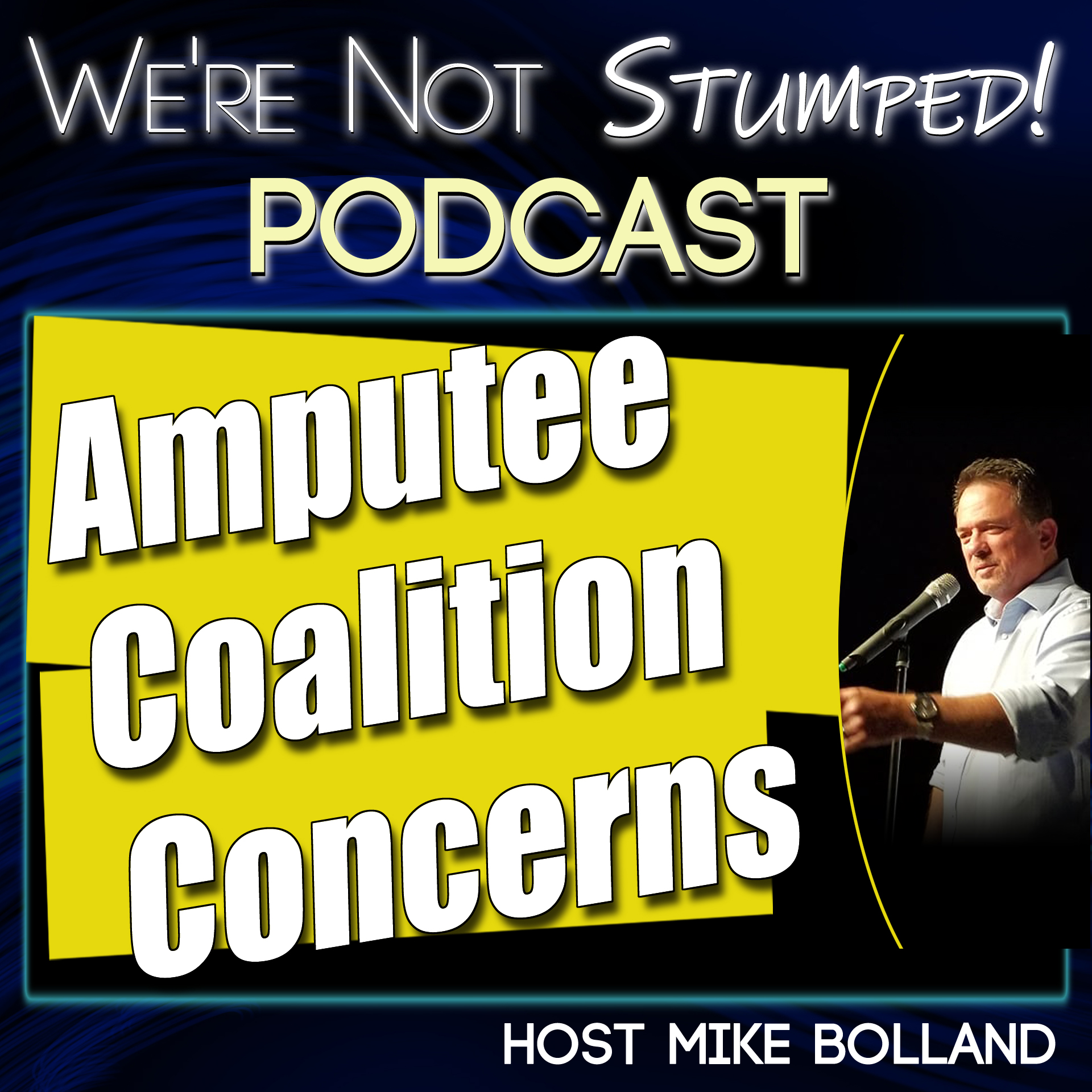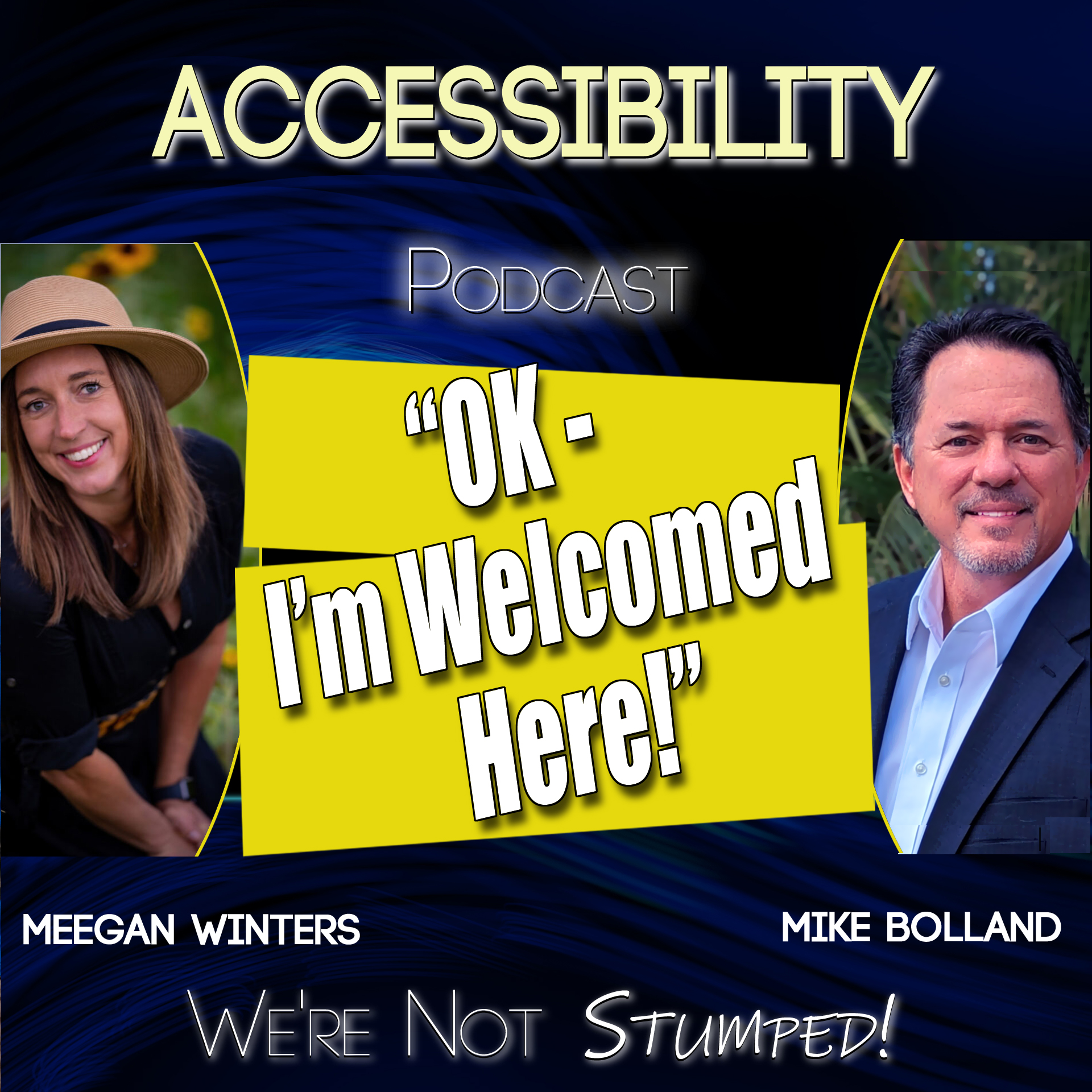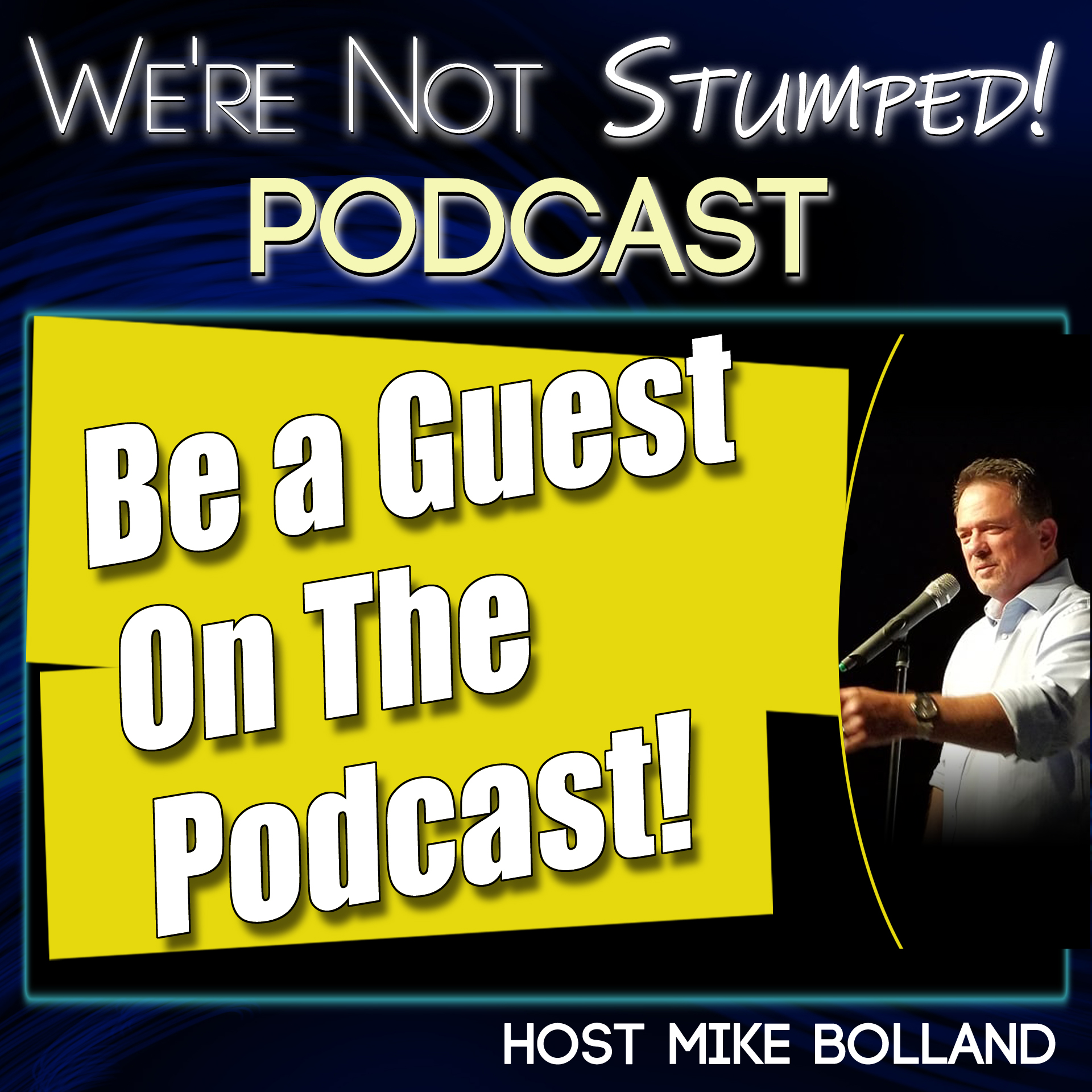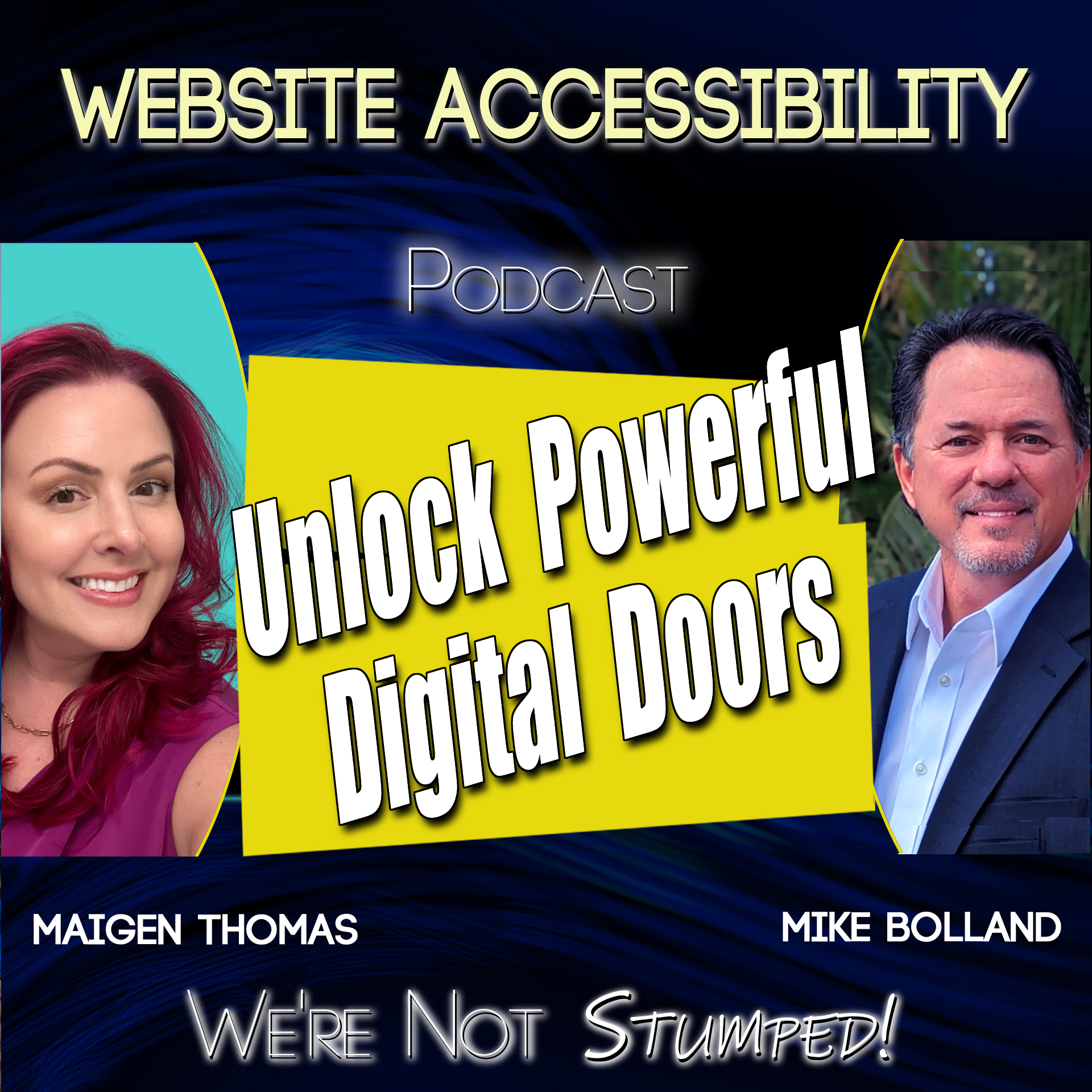General Amputee and Limb Difference Resources Podcast
Neurotechnology & Prosthetic Advancements with Dr. Christopher Duncan of BIOS
Dr. Christopher Duncan, Chief Medical Officer at Biologic Input Output Systems (BIOS), joins We’re Not Stumped with host Mike Bolland for a deep dive into neurotechnology and the future of prosthetics. With a background in rehabilitation medicine, Christopher explains how BIOS is combining advanced materials, neurophysiology, and machine learning to create prosthetic technology that restores natural movement and touch—far beyond what he calls today’s “Civil War technology.” The discussion also explores data registries, privacy concerns, and partnerships with leading institutions to expand access.
Making Inroads: Angela Calzone’s Vision for Improving Disability Employment
In this inspiring episode of We’re Not Stumped, Mike Bolland sits down with Angela Calzone, President & CEO of Inroads to Opportunities, as the organization celebrates its 66th anniversary. With a bold goal to double the number of individuals served—from 400 to 800—over the next decade, Angela shares her passion for breaking down misconceptions about hiring people with disabilities and her mission to create lasting workforce inclusion. From her 35+ year career in the for-profit sector to leading one of the most impactful nonprofits in the disability community, Angela opens up about the challenges of funding, the critical need for employer partnerships, and the real business benefits of inclusive hiring. She also shares powerful success stories, the impact of Inroads’ vocational training programs, and why their largest-ever fundraiser was a milestone moment for the agency. Whether you’re an employer, advocate, or simply someone who believes in the value of diversity in the workplace, this episode will inspire you to see what’s possible when communities come together to create opportunities.
Amputee Coalition Shake-Up: What Does the CEO’s Resignation Mean?
The Amputee Coalition is undergoing another major transition with the resignation of President & CEO Cass Isidro, who announced her last day will be August 22nd. In her farewell message, Isidro stated that her work had been about “restoring the Amputee Coalition to its original purpose with deeper community engagement.” That statement raises difficult questions: 👉 Why did the Coalition need to be “restored” in the first place? 👉 Has the organization lost focus on directly serving amputees? 👉 What does this leadership change mean for peer support, advocacy, and resources moving forward? In this episode of We’re Not Stumped, host Mike Bolland dives into the resignation news, shares community concerns, and examines whether the Amputee Coalition is truly on track to support the limb loss and limb difference community—or if amputees should be worried about its direction. Listeners are invited to join the conversation as the podcast takes on tough questions about the Coalition’s mission, leadership, and future.
From Classroom to Startup: Meegan Winters’ Mission for Accessibility
In this episode of We’re Not Stumped, Mike Bolland sits down with Meegan Winters, CEO and founder of AbleVu, the innovative accessibility search platform making the world easier to navigate for everyone. Meegan shares her inspiring journey—from special education teacher to tech entrepreneur—and how her friendship with Jessica, a power wheelchair user, sparked her mission to improve accessibility for all. Mike and Meegan explore AbleVu’s evolution from virtual tours to a “TripAdvisor for accessibility,” the business model that empowers contributors, and why accessible information benefits both consumers and businesses. Along the way, Meegan opens up about leaving a stable career, overcoming the challenges of building a startup, and the fulfillment that comes from creating real-world impact. Discover how technology and empathy intersect to make the world more inclusive.
Had a Bad Prosthetic or Prosthetist Experience? Let’s Talk
Podcast host Mike Bolland is looking to connect with individuals willing to share their experiences with prosthetists and prosthetic care. If you’ve ever faced challenges with a prosthetist, received a prosthetic that didn’t meet your needs, or discovered a provider who went above and beyond, your story can make a difference. On his show, We’re Not Stumped, Mike engages in open, honest conversations about life with limb loss, prosthetics, and advocacy. His mission is to give a voice to the limb loss community, spotlight real experiences — both the good and the bad — and work toward improving the system for everyone. Mike invites you to be part of this important dialogue, knowing that your insights could help others navigate their own prosthetic journeys with greater confidence and support. 📩 Interested in being a guest? Visit: https://werenotstumped.com/were-not-stumped-limb-loss-podcast-guest-guide/
Fixing Website Accessibility with Maigen Thomas
Is your website really accessible to everyone? In this powerful episode of *We’re Not Stumped*, host Mike Bolland welcomes web accessibility expert Maigen Thomas to perform a live audit of the podcast’s website—and the results are eye-opening! Accessibility isn’t just about compliance—it’s about empathy, inclusion, and making sure your digital experience works for everyone. Maigen shares her personal connection to accessibility, including how her grandfather’s vision loss shaped her perspective on designing with intention. Whether you're a business owner, content creator, or web designer, this episode is packed with practical tips and free tools to level up your site.
About General Amputee and Limb Difference Resources
“General amputee resources” refer to a broad range of information, services, organizations, and support systems available to individuals who have experienced limb loss or limb differences, as well as their families and caregivers. These resources aim to provide assistance, education, guidance, and community to help amputees adapt to their circumstances, regain independence, and improve their overall quality of life. Here are some examples of general amputee resources:
- Amputee Support Groups: These are local or online communities where amputees can connect with others who have had similar experiences, share advice, and provide emotional support.
- Rehabilitation Services: Rehabilitation centers and physical therapists provide specialized care and training to help amputees regain strength, mobility, and function. Occupational therapists assist with adapting to daily life.
- Educational Materials: Websites, books, and brochures provide information about living with limb loss, prosthetic care, mobility techniques, and maintaining a healthy lifestyle.
- Advocacy Organizations: Nonprofit organizations and advocacy groups, such as the Amputee Coalition, offer resources, education, and advocacy to promote the rights and well-being of amputees.
- Financial Assistance Programs: Some organizations and foundations provide financial assistance or grants to help amputees access necessary prosthetic devices and services.
- Peer Mentoring Programs: These programs match experienced amputees with newly amputated individuals to provide guidance, support, and encouragement during the recovery and adjustment process.
- Government Agencies: Government departments or agencies may offer disability benefits, vocational rehabilitation programs, and resources to assist amputees in securing employment and accessing healthcare services.
- Adaptive Sports and Recreation: Organizations dedicated to adaptive sports and recreational activities offer opportunities for amputees to participate in various physical activities and competitions.
These general amputee resources are essential for individuals adjusting to life after limb loss, as they can provide guidance, support, and practical solutions to help amputees lead fulfilling and independent lives. The specific resources available may vary by location, so individuals are encouraged to explore the options relevant to their needs and circumstances.

